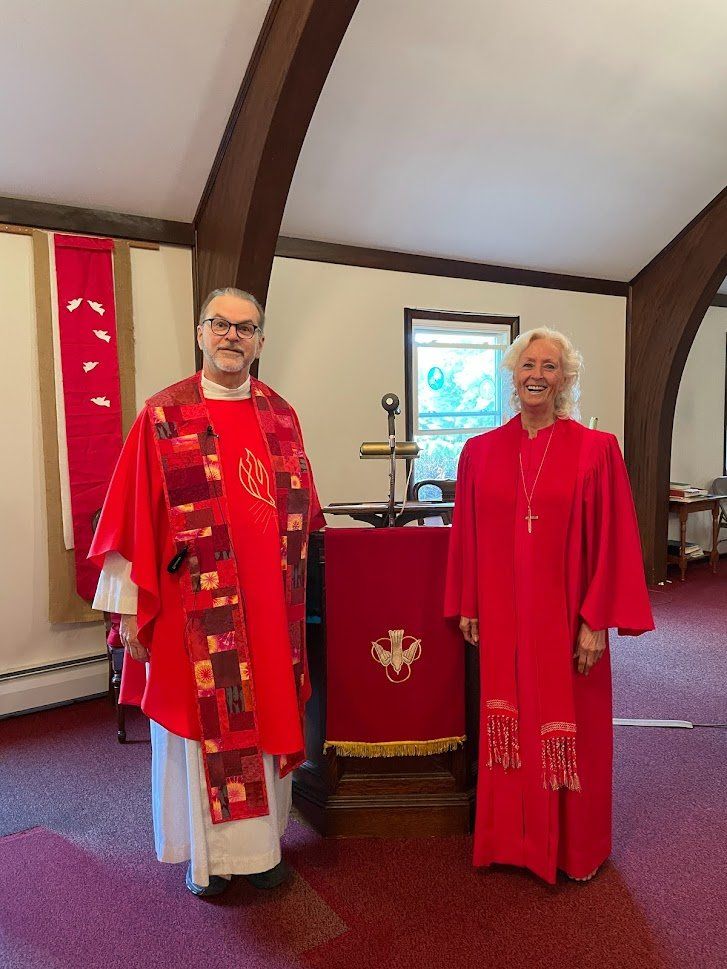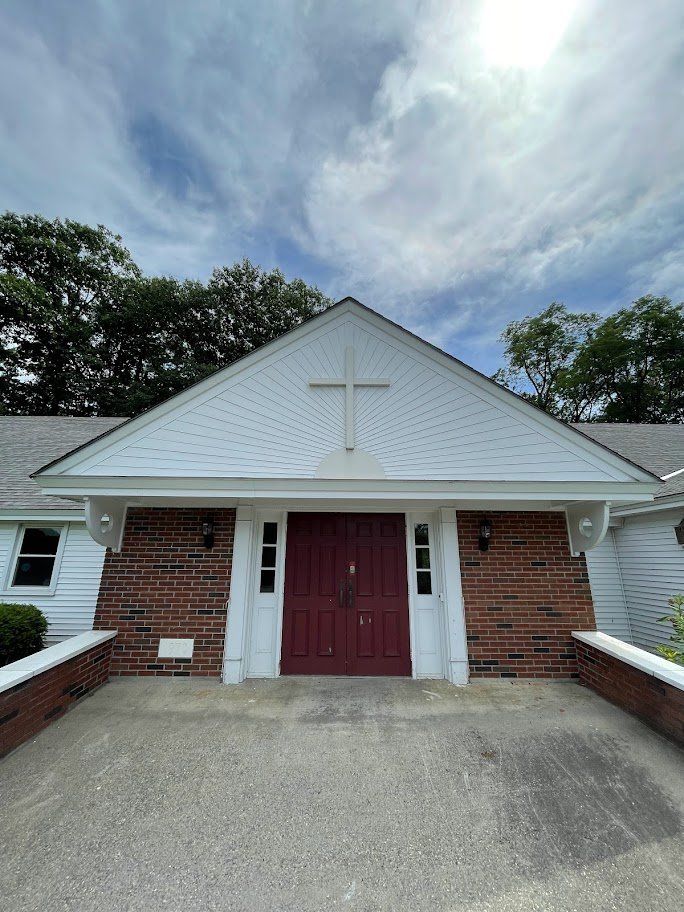Open Hearts
Open Minds
Open Doors
Introduction
First United Methodist Church of Brattleboro VT (FMC) has been in existence since 1836. Previously, it built churches in the downtown area near Church and Elliot Streets. It’s last previous building is now the Hotel Pharmacy. Its current location at 18 Town Crier Drive, overlooks the Connecticut and West Rivers on the East side of Route 5/Putney Road. It was built in 1970 and is accessible.
FMC seeks to be welcoming, serving, spiritually enriching for all. We are proudly part of the Methodist or Wesleyan Movement begun in 18th Century Britain. We are part of the New England Conference of the United Methodist Church and located in the Green Mountain District of the Conference.
But we are not the only branch of the Christian family, nor are we the only way for people to relate to God. While we see ourselves as relating to God through Jesus Christ in our Methodist tradition, we recognize and honor other religious traditions: Jewish, Muslim, Buddhist, Indigenous Spirituality, and others. We happily participate in Brattleboro Area Interfaith Leaders Alliance (BAILA). We are especially joyful that we are working in Beloved Community with First Baptist Church of Brattleboro (FBC), with whom we share space, worship and ministries.
Welcoming Community
FMC has had periods of growth and periods of retrenchment, but it has always sought to be a spiritually welcoming place for all sorts of folks. We do not seek to be a church of one class or ethnic group. Rather, we reach out to welcome people from a variety of backgrounds and circumstances—people who seek love and learn to love others. We currently have folks who are Indigenous, African American, Hispanic as well as those from northern European backgrounds. In life together, we seek to honor the dignity of traditions from all ethnic groups.
We have policies to address racial, sexual/gender and power relationships in order to protect all members of the community, while treating each person with dignity and respect.
We embrace persons who identify as LGBTQ+, and those of us not in that spectrum seek to be allies to them, as well as others who have historically been marginalized, demonized or segregated. We also work to make our life together accessible to all, while honoring the abilities of those who might otherwise be regarded as having life challenges.
While we are happy to welcome new members, our goal is to live with love and generous, inclusive hospitality toward all people, providing space, care and support to anyone who seeks it, as we are able.
Serving Community
For most of its existence, the FMC has been one of Brattleboro’s smaller protestant churches, but it has been an active congregation, contributing to the well-being of people in Brattleboro. Some of its members were instrumental in the founding of what is now known as Groundworks and Foodworks. Members have been very active over the years in the work of these agencies and others to support the under-resourced folk of the area.
Service to the community and world, and especially those who are under-resourced, marginalized or unwanted has always been a core value of the church. We see ourselves as agents of compassion, voices for justice, and a people who seek to practice active, engaged love that respects human diversity, dignity and development for all.
At times, we have had a large garden from which we provided large amounts of garden produce to those in the community with food insecurity. At other times, we have gathered food from retailers for distribution. Our goals have not been self-applause, but quiet, determined work.
We are currently working to assist immigrants to the Brattleboro area from Afghanistan and Ethiopia with our FBC partner and those from other faith organizations. We support justice and respect for indigenous folk, especially the Abenaki people on whose unceded land our building rests.
We embrace the Social Principles of the United Methodist Church, although we tend to be more progressive on issues of human sexuality.
Rev. Ralph Wesley Howe:
God began calling me to serve even as a child, but I did not respond to the call until I had been practicing law in Vermont for 12+ years. I was called to serve in the Wesleyan tradition of the United Methodist Church. John Wesley’s practical theology has touched me deeply. Through it we are encouraged to use the loving means of grace God pours out to allow the Holy Spirit to guide us toward the holiness of practical love.
I grew up in Wilmington, VT, and after my education have lived in Calais, Northfield, Barre and Brattleboro VT. I spent 8 years serving in Pittsfield Ma also. I am married, and we have 4 grown children, as well as two grandchildren.
I enjoy offering spiritual direction to individuals who are seeking deeper understanding of the movement of God in their lives. I play a bit of piano and love to read. Over the years since I became a Methodist pastor (@26) I have served on various teams and boards for the church in Vermont, MA and the Conference, including as President of the Conference Council on Finance & Administration, and the Board of Discipleship. I attended the World Methodist Conference in Brighton UK in 2001.



